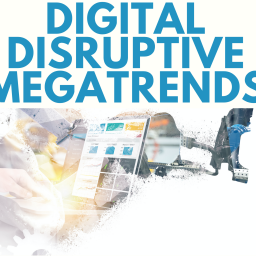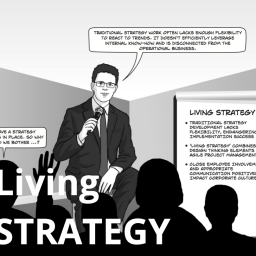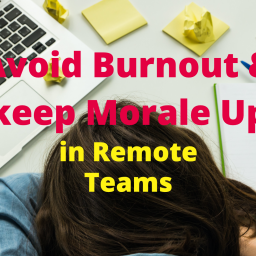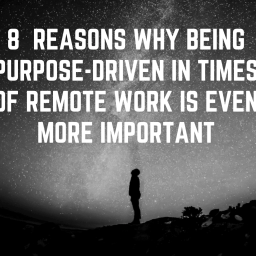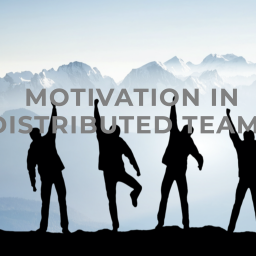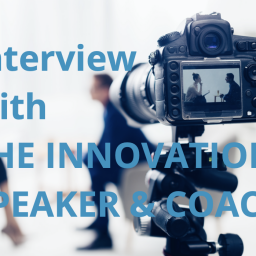Digitale Culture - Abstract
We live in a fully digitalized world that is constantly evolving and improving faster and smarter than ever before. As a good leader, it is our job to be always highly informed and willing to take action when technology improves – once again. We have to be willing to change, adapt, and evolve with technology and never work against it. Those who will fight the digital culture will end up losing what they worked so hard for because others will be better, more profitable, and advanced.
Those who grow and bloom with the growth in Digital Culture will seek great success in our near future. In this blog, I will give you the top seven steps you must follow as a manager/leader/entrepreneur to build, maintain, and grow a Digital Culture within your company.
What is Digital Culture?
Most people prefer calling it a Digital Culture over just simply calling it the Digital Transformation as implementing technology is actually more about people than anything else. Therefore, Company Culture is a top priority when it comes to building a Digital Culture. This concept only works when all employers work together as a group rather than individuals or as I prefer to call it – as a culture.
The perfect employee for building a great Digital Culture is autonomous, flexible, and agile.
With all this in mind, the goal of Digital Culturist is to explore this area. We want to dive deeper into what a great manager guide, to “building” a Digital Culture, would look like. Are you willing to participate?

THE HOW-TO-MANAGER-GUIDE
Make sure to prepare your leaders
You have to strengthen the internal communication from human resources
Assure you know exactly which skills your employees need to develop
Once your employees feel willing to learn and grow within the Digital Age rather than resisting it, it is important to raise awareness on specific skills that they need to develop.
Certain technical skills are vital to have in literally any profession, to save time and money. Instead of sending technical issues to the IT department straight away, it would be faster and more profitable if all employees have at least a basic technical knowledge if not more than that.
Every employee needs to be able to understand the major tech trends, the company’s tech ecosystem, and the disruptive technology in their profession. Apart from that, each individual has to have the skill to master their own tools and how to use them correctly, efficiently, and to understand their purpose.
Understanding the purpose is vital when it comes to running a business successfully. Therefore, I wrote another article about why being purpose-driven is so important.
For more information click here
Very great skills to develop in growing a digital culture are meeting on the middle ground between work methodologies and certain soft skills such as:
- Being able to work independently
- Being able to handle failure management
- Being highly responsive and able to adapt to the ever-changing technology
- Being willing to take necessary risks
- Having advanced customer service knowledge
- Seeking constant innovation in your ecosystem
- Seeking awareness of your evolving profession and market and keeping up with competitors.
When you have a specific vision which skills your staff need to develop you can head to step number four.
Give your staff a boost with further training & enabling
Why Learning Journeys are efficient und effective?
The aspects of informal and formal learning content of role-based Learning Journeys, customized to the employee needs and development, mixed with aspects of gamification lead to a high efficiency in employees enabling.
High level of automation in combination with re-usable content make Learning Journeys a good approach also from cost point of view.
The role-based Approach of the Learning Journeys makes each Journey individual. The employees focusing on the right content, the right time.
Make sure you encourage agility among the whole organization
Great leadership is crucial when it comes to building an agile and innovative philosophy for every individual of the business. Teach that it is okay to fail. However, if employees fail they need to fail fast and adapt even faster. – That’s the right attitude.
Make sure you are providing the necessary technological support
If you really want your business to grow toward a Digital Culture you won’t be able to avoid investing in necessary technological equipment such as software support. For your employees to perform on a superb level you need to give them the right tools to do so.
Any software can be kitted up with in-line navigation, real-time support, and on-screen guidance 24 hours a day seven times a week, which can make working hours way more efficient.
If you provide helpful tools like digital adoption solution programs your employees will have it a lot easier to learn how to use their software correctly and most efficiently. Apart from that, you save time having to help them yourself and they feel more independent and less frustrated which leads to – happier employees.
And if your employees are happy, the results get phenomenal.
Help your employees to perform better and everybody wins.
Try to encourage new habits and daily practices
A Digital Culture grows well just like everything else in life with having daily practices and creating new beneficial habits as the Digital Transformation requires new work methods and habits it is best to implement these with daily exercises.
A very great tool to support your employees to continuously learn new things and feel less frustrated when learning new habits is so called continuous retrospective. …more about this topic?

Conclusion - What makes a Digital Culture successful?
Research has shown that companies that promote building a Digital Culture are five times more likely to be successful and usually sustain very strong performance.
The most important thing is to invest into a long-lasting Digital Transformation Culture rather than a short term based Digital Transformation to create the best results possible.
If leaders create a good example by building the necessary digital infrastructure their employees will happily follow. Therefore the right leadership is decisive when it comes to building successful Digital Cultures. Simply having a good digital strategy won’t ever be enough.
Remember this is more about people than anything else.
In this case your staff. This is your paramount to success.
If you follow the steps above you will easily thrive into the age of digital evolution.
If you need more help in becoming a successful digital gamechanger feel free to get in touch with me here. I am happy to help!
